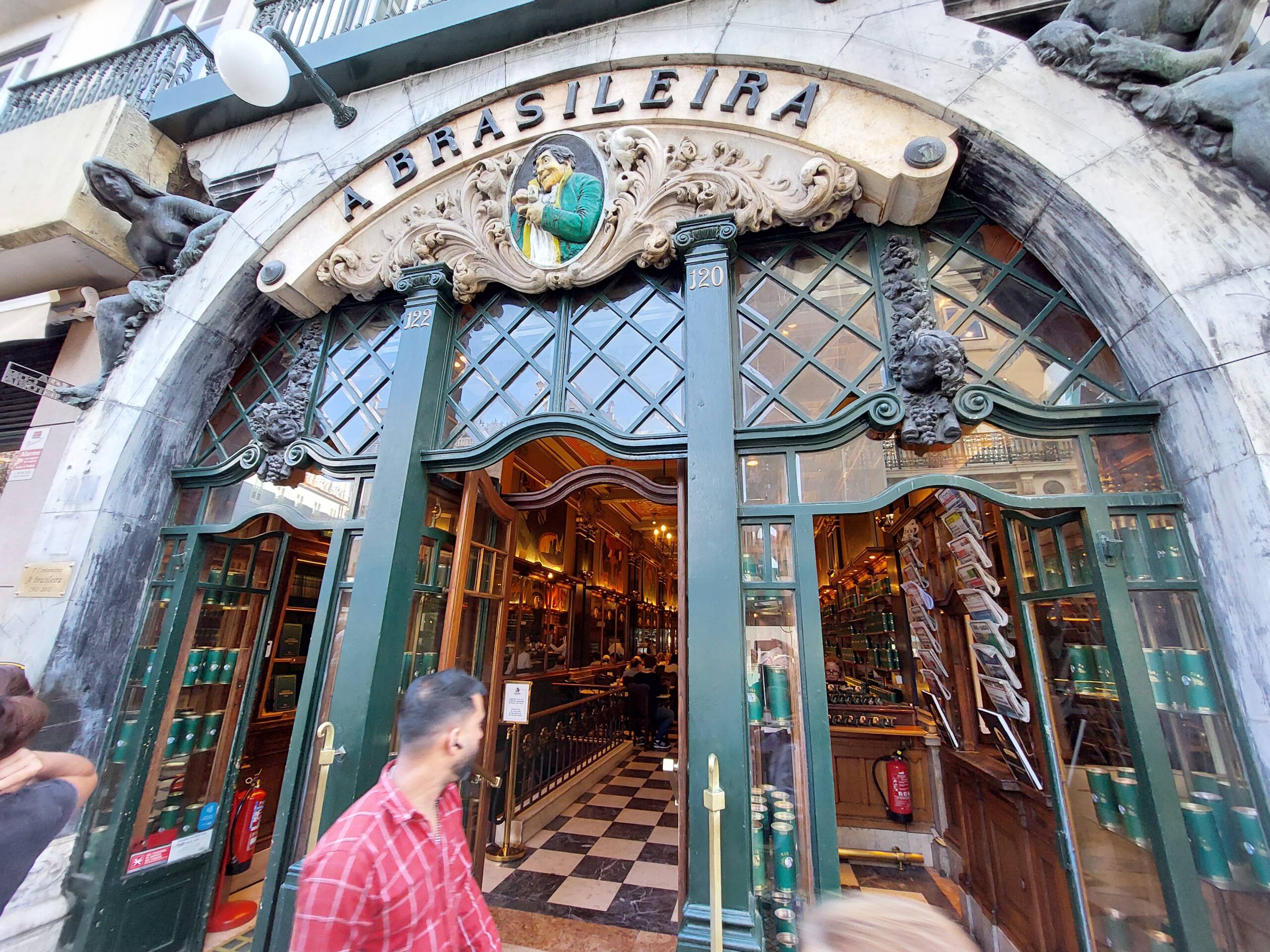There are cafés you duck into because you’re thirsty, and then there are cafés like A Brasileira, where you step inside and suddenly feel you’ve walked into a piece of Lisbon’s soul. The façade alone is worth pausing for: green-painted woodwork framed by stone sculptures, with a carved portrait above the door that reminds you this place has seen more than a century of stories pass through. The doors swing open and there it is—black-and-white tiled floors, brass railings, mirrored walls, shelves stacked with green tins of coffee, and the golden glow of chandeliers spilling across polished wood. It feels less like a café and more like a stage set for some grand story of intellectuals, poets, and bohemians.

I lingered for a while, taking it in. There’s a certain magic in knowing that Fernando Pessoa himself once sat here, scribbling thoughts over a coffee, and that generations since have done the same. The crowd is a mix—tourists clutching guidebooks, locals chatting easily at the counter, and the occasional solo visitor like me, just happy to sip and watch life unfold. The espresso (or “bica,” as Lisboetas call it) is strong and aromatic, with that smooth bitterness that somehow makes you want a second even before you’ve finished the first. It comes with the weight of tradition, the kind of coffee that feels like it’s been perfected by sheer repetition across decades.
Yes, it’s busy, yes, it’s a little touristy, but it doesn’t matter. A Brasileira is one of those places where the atmosphere outweighs any imperfections. Sitting there, watching the bustle inside and the flow of people on Rua Garrett outside, I felt woven into the fabric of the city. Lisbon has many cafés, but this one isn’t just a stop—it’s a rite of passage. If you love coffee and history, and maybe a touch of theater with your caffeine, then A Brasileira is exactly where you need to be.
Leave a Reply